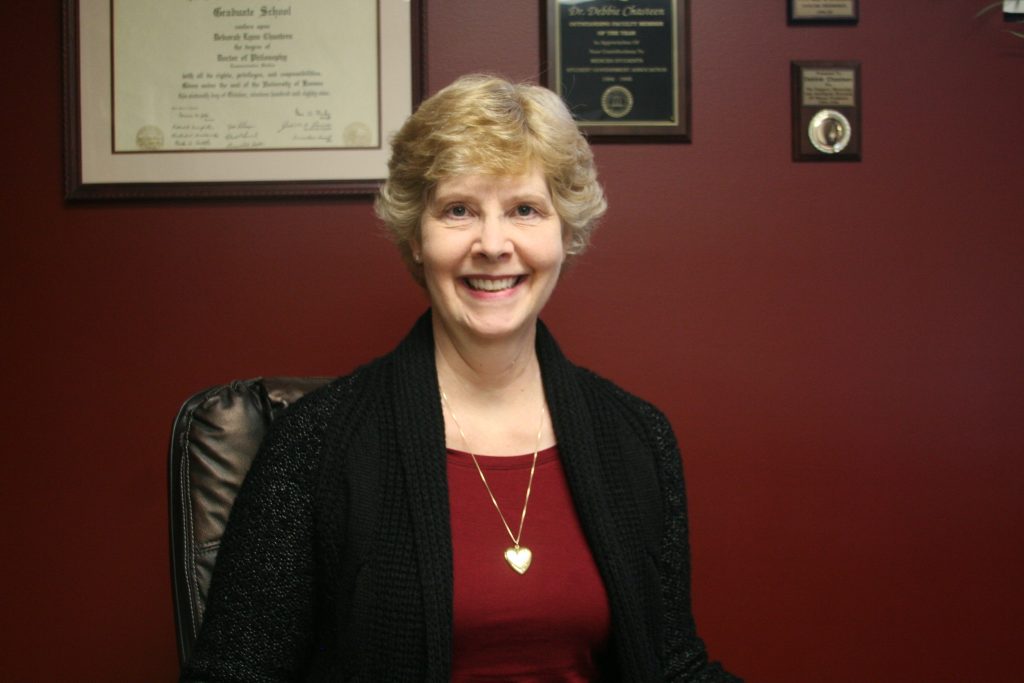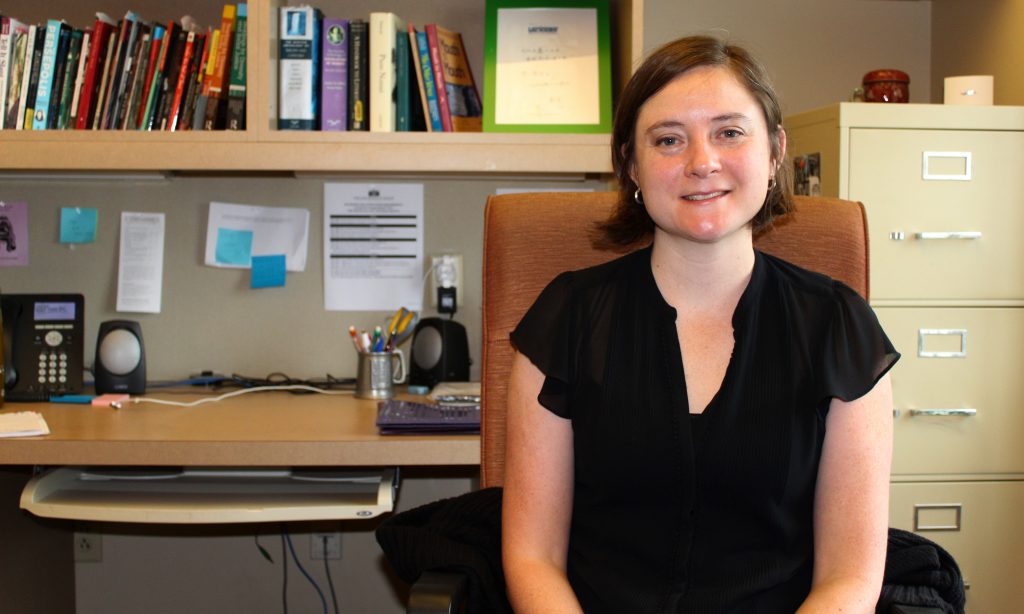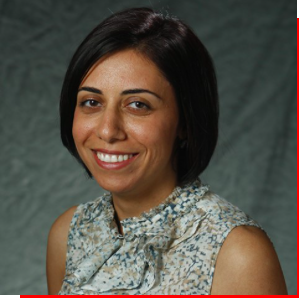
The month of March is dedicated to reflecting upon and celebrating the often overlooked contributions of women to United States history, culture and society. The 2020 theme of Women’s History Month is “Valiant Women of the Vote” to pay homage to the women who fought for the passage of the 19th amendment. This amendment, which constitutionally grants women the right to vote, has its 100th anniversary this year.
To consider and celebrate the women who have shaped our present, The Hilltop Monitor sat down with William Jewell College professors – Debbie Chasteen, Ruth Williams and Azadeh Rafizadeh – to discuss both the historic accomplishments of women and the ongoing fight for women’s equality.

Williams, associate professor of English, recalls discovering American suffragist Alice Paul during a research project in high school. Dr. Williams tells of discovering how Paul, alongside her fellow suffragists, picketed the White House, was arrested and went on a hunger strike in prison.
“I remember being really excited that a woman could have principles, that she could hold to those principles, that she could fight for them and that it could create change,” said Williams.
Williams explains that Paul is an example of something larger that draws her interest as a woman to women who have a passion for change.
“It is the women who are not deterred and are willing to use tactics that might be unbecoming in some ways,” said Williams.
In considering the vital achievements made by women in our past, Williams points towards the accomplishments of second-wave feminism.
“There are many critiques to be made by third-wave feminism of second-wave feminism, but at the heart, the women of the second wave were starting to dismantle the ideological aspects of patriarchy that have these trickle-down effects of how women are treated in the home, at work and in sexual relationships,” said Williams.
Williams discusses the impact of the numerous and significant changes of second-wave feminism surrounding issues around sexual assault, rape culture, abortion rights and women’s autonomy over their bodies.
“The way that I move through the world with a woman’s body is freer than it used to be, and this may be something that some people don’t even understand,” said Williams.
Chasteen, professor of communications, draws upon women who have fought the limitations against them.
“Women who were candidates made an impact on me,” said Chasteen.
In graduate school one of Chasteen’s areas of study was political communications, and in 1986 she worked on a campaign for a female candidate running for the U.S. Senate. The candidate, a lieutenant governor for Missouri, had run twice before and been defeated both times.
“I knew it was an uphill battle,” said Chasteen.
At that time, only two out of 100 U.S. Senators were women.
Seeing women strive for representation made an impact upon Chasteen. Chasteen points to women like Shirley Chisholm and Geraldine Ferraro.
“[Women] who were the ‘first’ in many respects to hold an office or to have a national platform,” said Chasteen.
Chasteen references that when considering achievements made by women, some of the more tangible changes for women, such as the right to vote, own property and work outside the home, come easily to mind.
“Some of these have specific moments we can point to, but some of these are incremental,” she said.
Chasteen tells of the slow and gradual change for women in the workforce by explaining that while her grandmother had worked her whole life and was restricted to certain fields, the workforce is less confined now. Chasteen considers herself privileged that in her professional life she has found options and opportunities in the workforce, a privilege that many women in history have fought for.
“When I was entering the workforce, certain fields were more difficult, but I did not have the feeling that if I had the capability, I could not do whatever I wanted,” Chasteen said.

In discussing significant achievements made by women, Rafizadeh, associate professor of mathematics, discusses women who have entered male-dominated fields and paved the way.
“[Women have] gotten faculty positions and have actually moved up the ladder – like our provost and our president,” said Rafizadeh. “Things were not this way forty years ago. I think you don’t need to go that far back to be thankful to such women and see how women have suffered.”
Rafizadeh notes that while this progress is significant, we still have a long way to go.
“We have made a lot of achievements, but I think we are really as a group of species, really behind where we need to be, ” said Rafizadeh. “It is very disappointing that, taking the political field, women get punished for being well prepared, for being thoughtful and for planning things.”
The subtle, hidden, but very real discrimination against women can be found every day, Rafizadeh says.
“I see that in my field, I see that in my career, I see that in my house,” Rafizadeh said. “You turn on the TV, you open any women’s magazine in the doctor’s office, and you see these messages that should be outdated, but they are not.”
While teaching Williams discusses the presence of low-level sexism that may not be conscious but is present nonetheless.
“I think women professors get treated differently by students,” said Williams. “I feel like some students, in my particular experience in the past, treated me with a level of skepticism that they would not have if I was a man.”
Rafizadeh also recalls similar sexism she has faced as a professor.
“When I teach my courses I think I have a lot to prove,” said Rafizadeh. “Especially as a brown woman with an accent. Yes, I know calculus, I can teach you this. I feel like I am having to prove myself to my students.”
While not necessarily explicit, gender prejudice in academia is still a pressing issue, Rafizadeh explains.
“Despite having women in leadership positions at Jewell, there is still prominent sexism going on,” said Rafizadeh. “It starts with the leadership all the way to some of our students. It is undeniable, it is there, and I feel it.”
Chasteen recognizes that while she has had an easier path before her than many, she can still list instances of sexism in the workplace.
“I have had times when I was assumed to be a secretary,” Chasteen said. “It fits into a preconceived notion of an organizational business structure.”
Chasteen references being asked to be a notetaker at her first professional job, being asked during interviews about her marital and maternal status and being mistaken as an assistant for the man who was her assistant. Chasteen explains that these things did not majorly deter her, and she has been able to get the positions and promotions she has wanted.
“Those were minor blips, not anything that has majorly impacted my career, but I recognize there are women who have not had that opportunity,” Chasteen said.
For Rafizadeh, working in a male-dominated field has proved to be a continuous struggle.
“For me, it has been a fight all along to get to where I am,” she said.
Rafizadeh recalls having often been the only woman in the room during sessions of conferences she has attended.
“I get a lot of looks,” Rafizadeh said. “Like they are asking ‘What are you doing here? Are you a graduate student? Are you somebody’s wife?’ I get the feeling they believe I don’t belong, and I believe that a lot of the time.”
Considering obstacles for women in the workforce, Williams explains that in secondary education, she has noticed women often being saddled with “professional care work.”
“Women are often faced with an unconscious bias related to having to do service work,” said Williams. “Women are socialized because of gender expectations to see their roles as helpers. Somehow that ends up translating in academia where women are expected to do more committee work, more of the grunt work.”
Williams discusses how this service work, while a positive kind of work, can create disparities in institutions.
“I am not saying this is the case at Jewell, but I think that I have looked around the table and I have seen all women,” said Williams. “I think that part of that is because women are opting to sit at the table, and that is great, but sometimes that labor displaces other kinds of labor that is more respected.”
Celebrating Women’s History Month this year, as the 100th anniversary of the passage of the 19th amendment, simultaneously gives us the chance to consider the significant challenges overcome by women in the past 100 years and gives us the chance to look forward to the next 100.
When asked about her hope for the direction of women’s rights in the future, Williams responds with no hesitation.
“First of all, I’d like a woman president,” said Williams.
While Williams acknowledges that while we are getting closer, she explains that it is still a mountainous feat.
“Even women have internalized misogyny,” Williams said. “Voters just have a feeling about a female candidate, and they cannot really pin it to gender. We see this in the ways that our women candidates have been spoken about.”
Williams also spoke about the need for a workplace shift – not just for working mothers, but for all working parents.
“We don’t promote work-life balance,” Williams said. “We don’t promote flexible schedules.”
The systems in place do not allow working parents, working mothers in particular, to be successful. Our structure penalizes them. But as Williams explains, it is not unusual or unnatural for there to be working mothers and working parents. It is the norm, but the workplace does not reflect this.
“We need to have a system to accommodate our reality, and that is for your generation to figure out,” said Williams.
Chasteen, too, notes room for us to grow.
“In some ways I hope that in the next 100 years we are not talking about women or men in terms of rights, but that they are human rights,” she said.
Women’s History Month also allows us to honor the women in the United State’s history who have fought to bring the liberties women have now and presents us with an opportunity to evaluate the conditions for women in the U.S. As we consider and celebrate the past and the ongoing work of women to gain equality, it is important to recognize that the integration of women into our narratives should be an everyday objective, not just during March.
